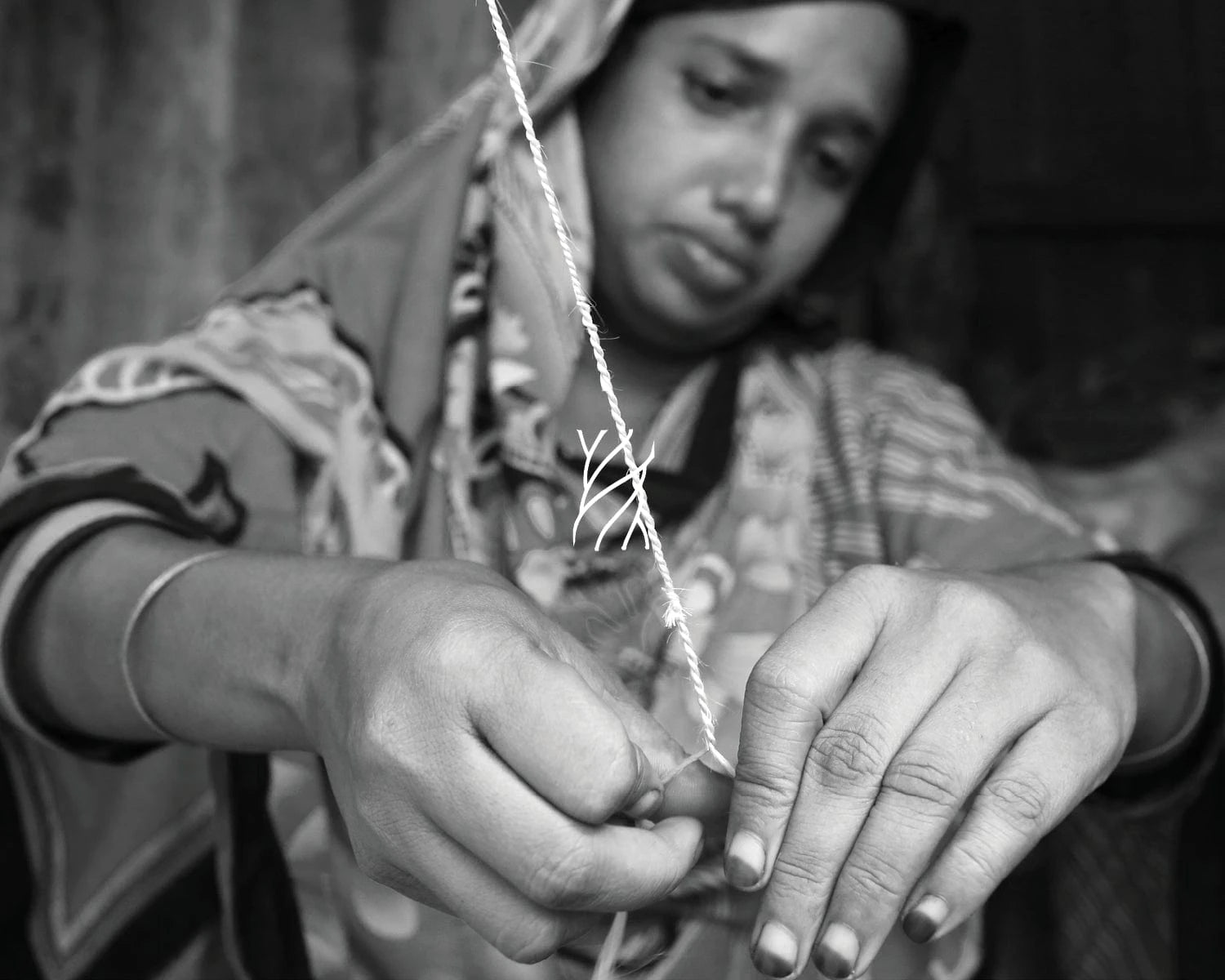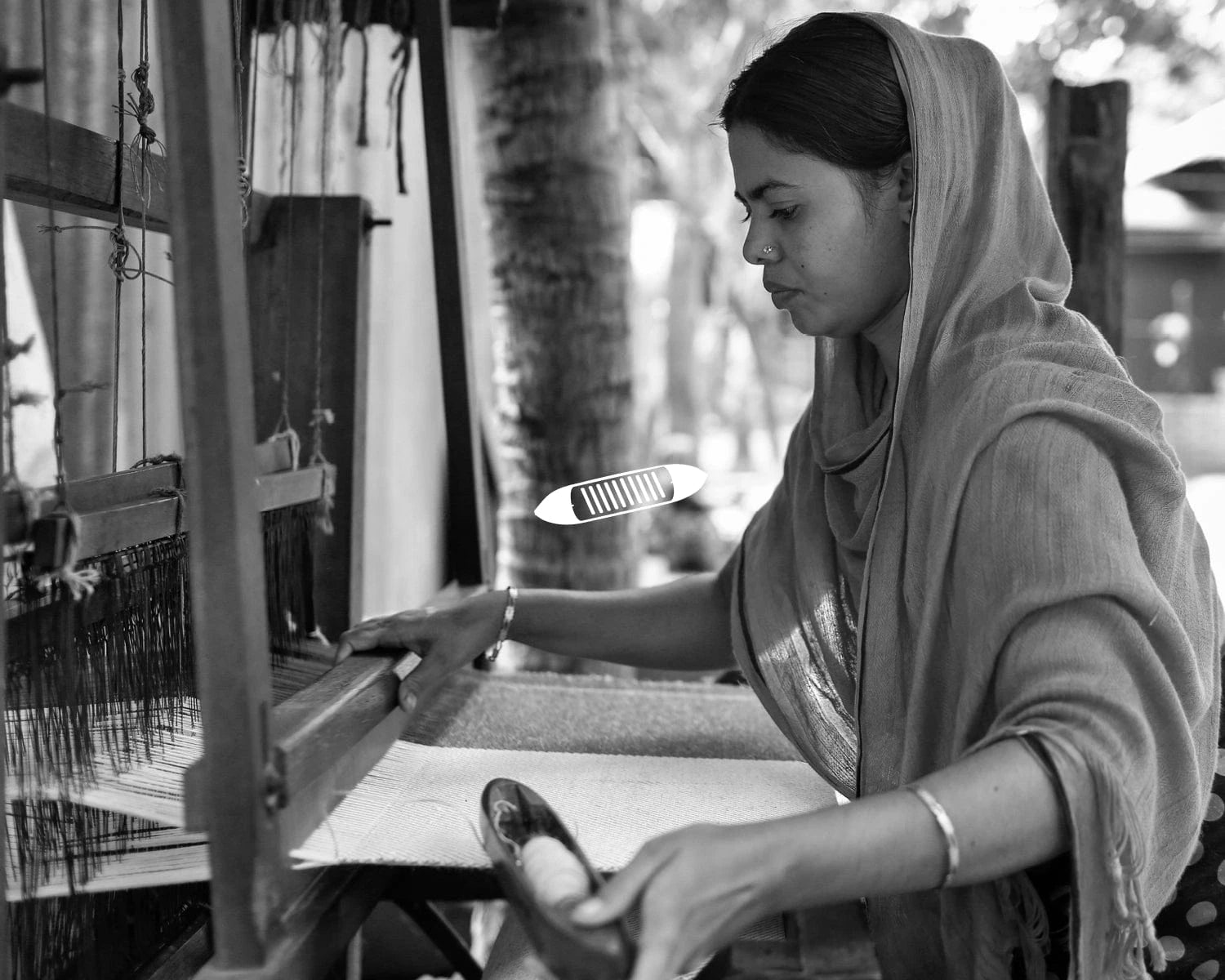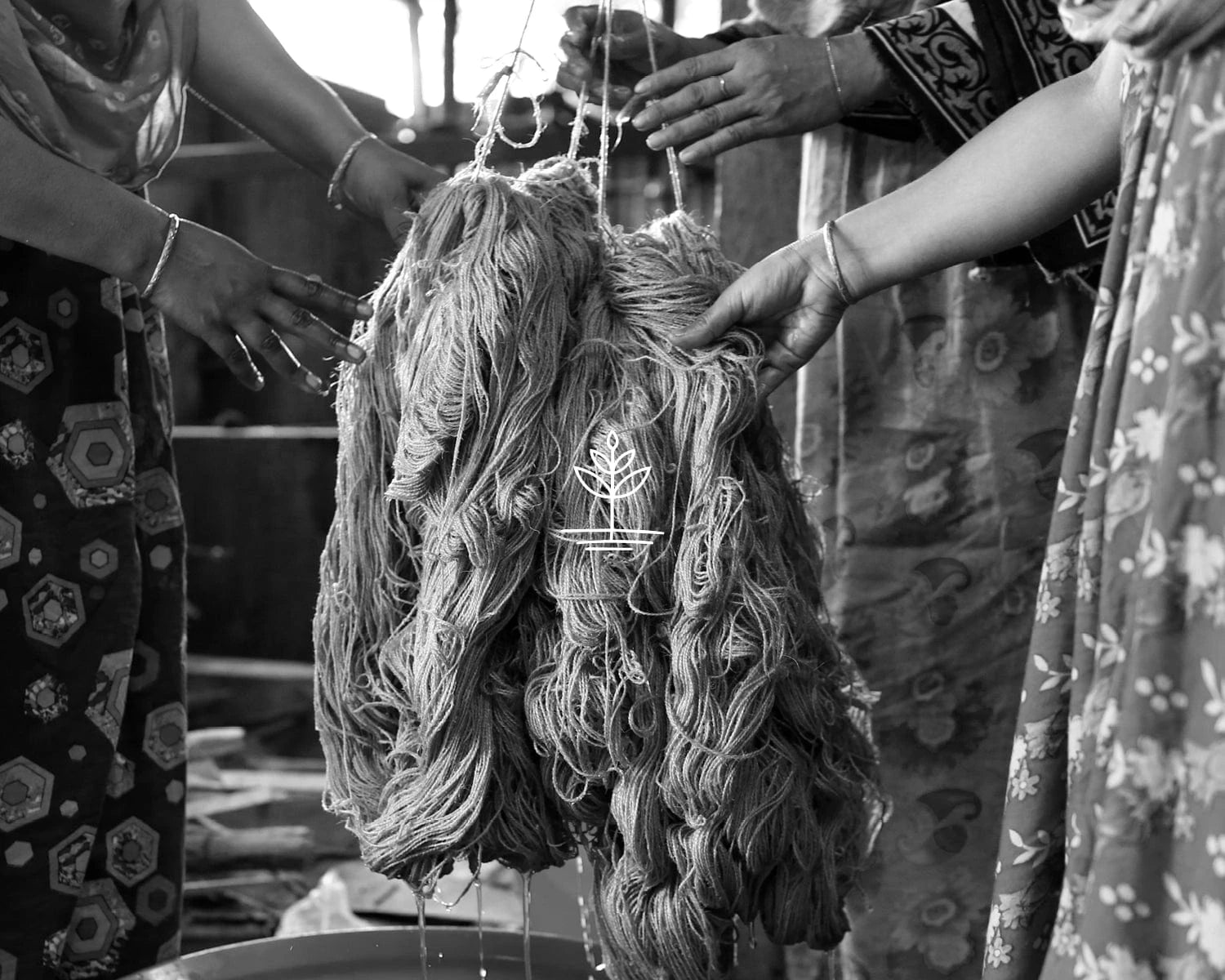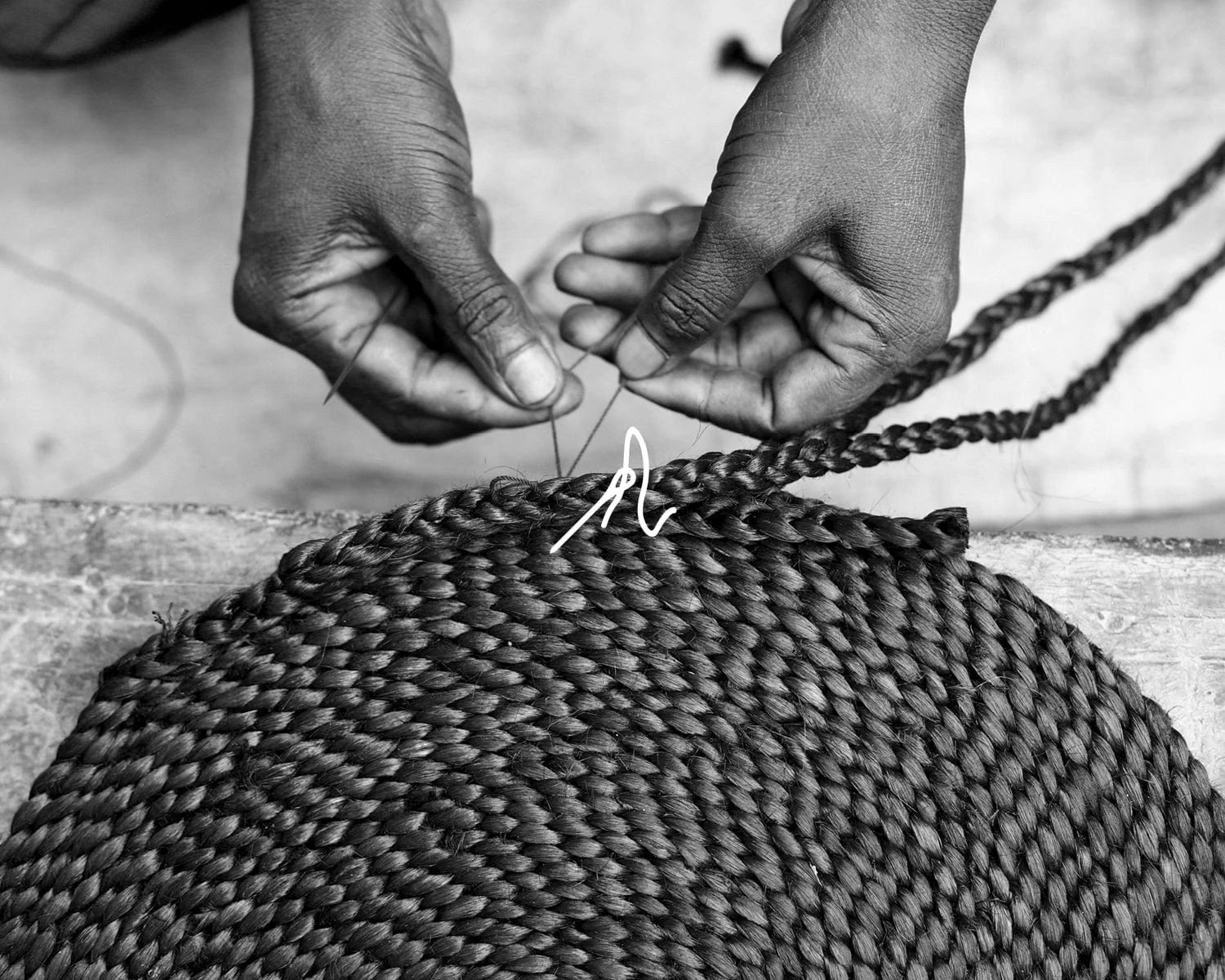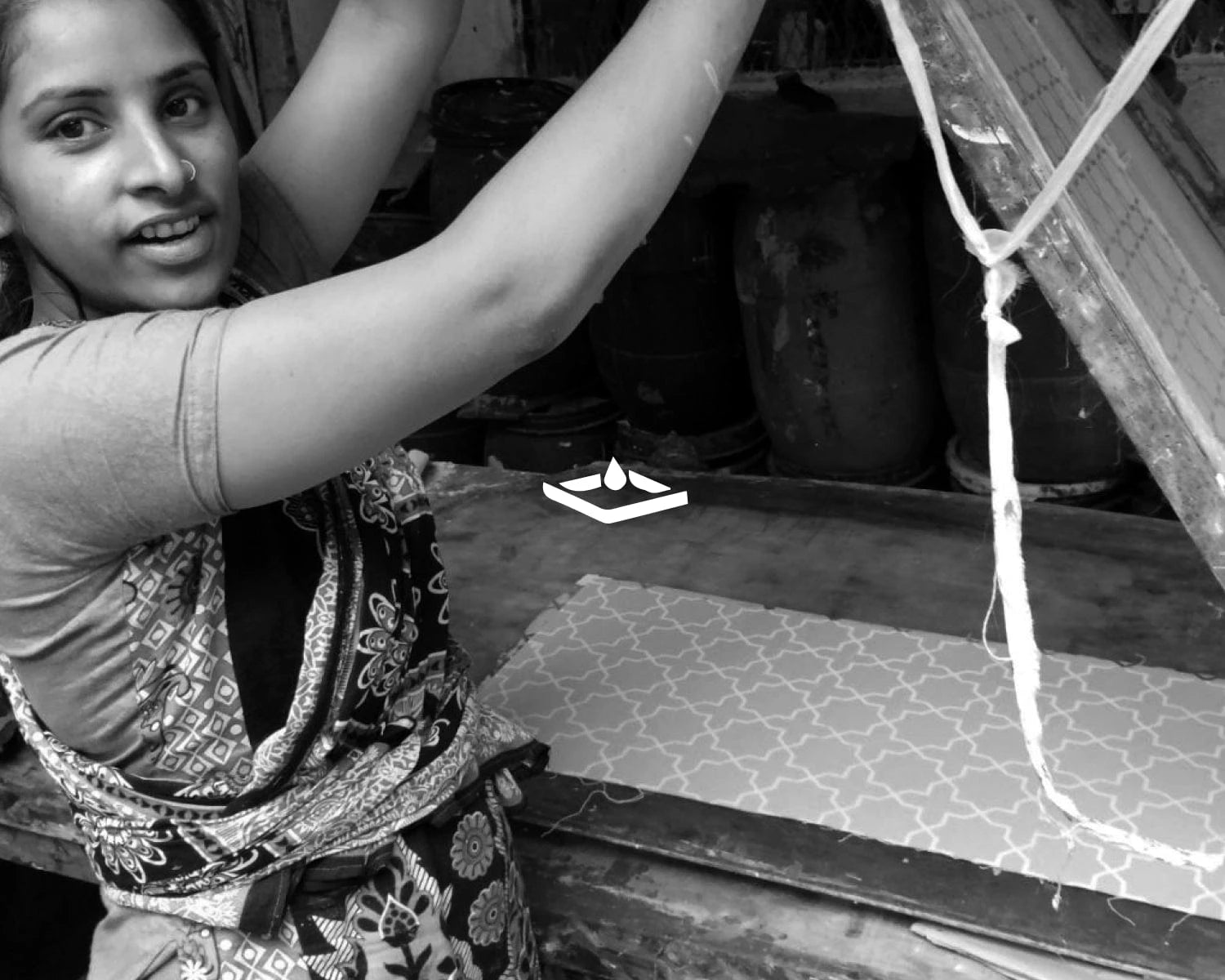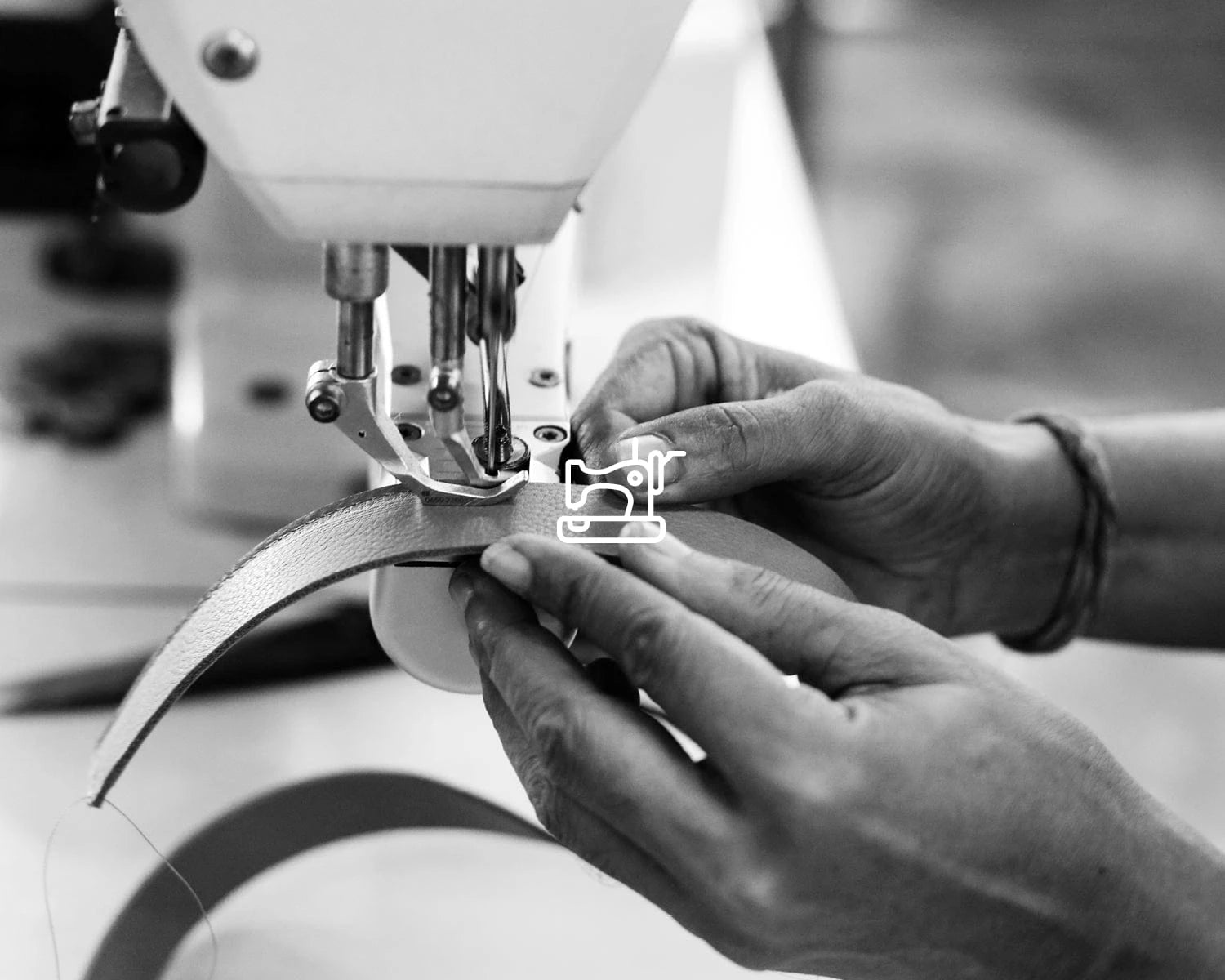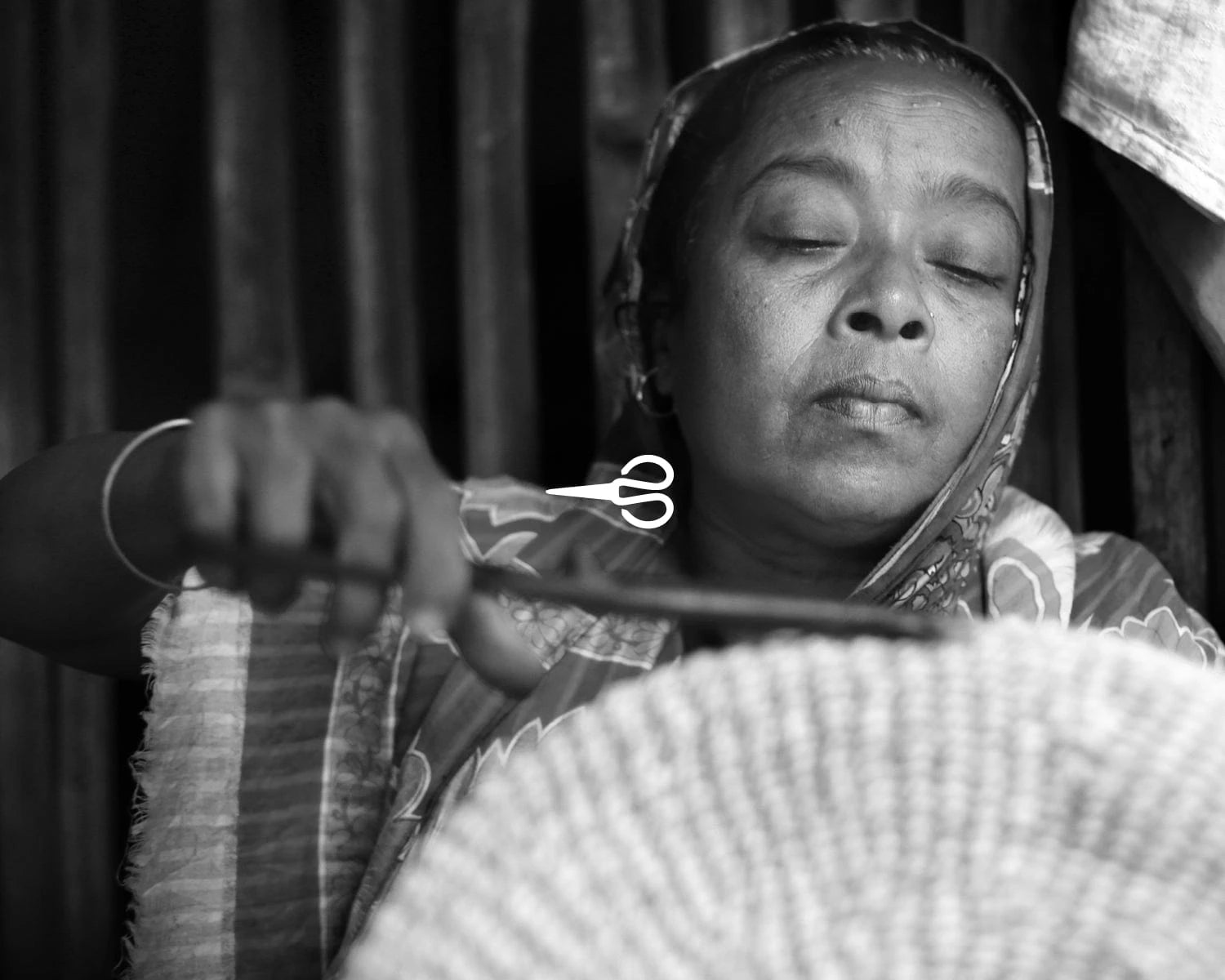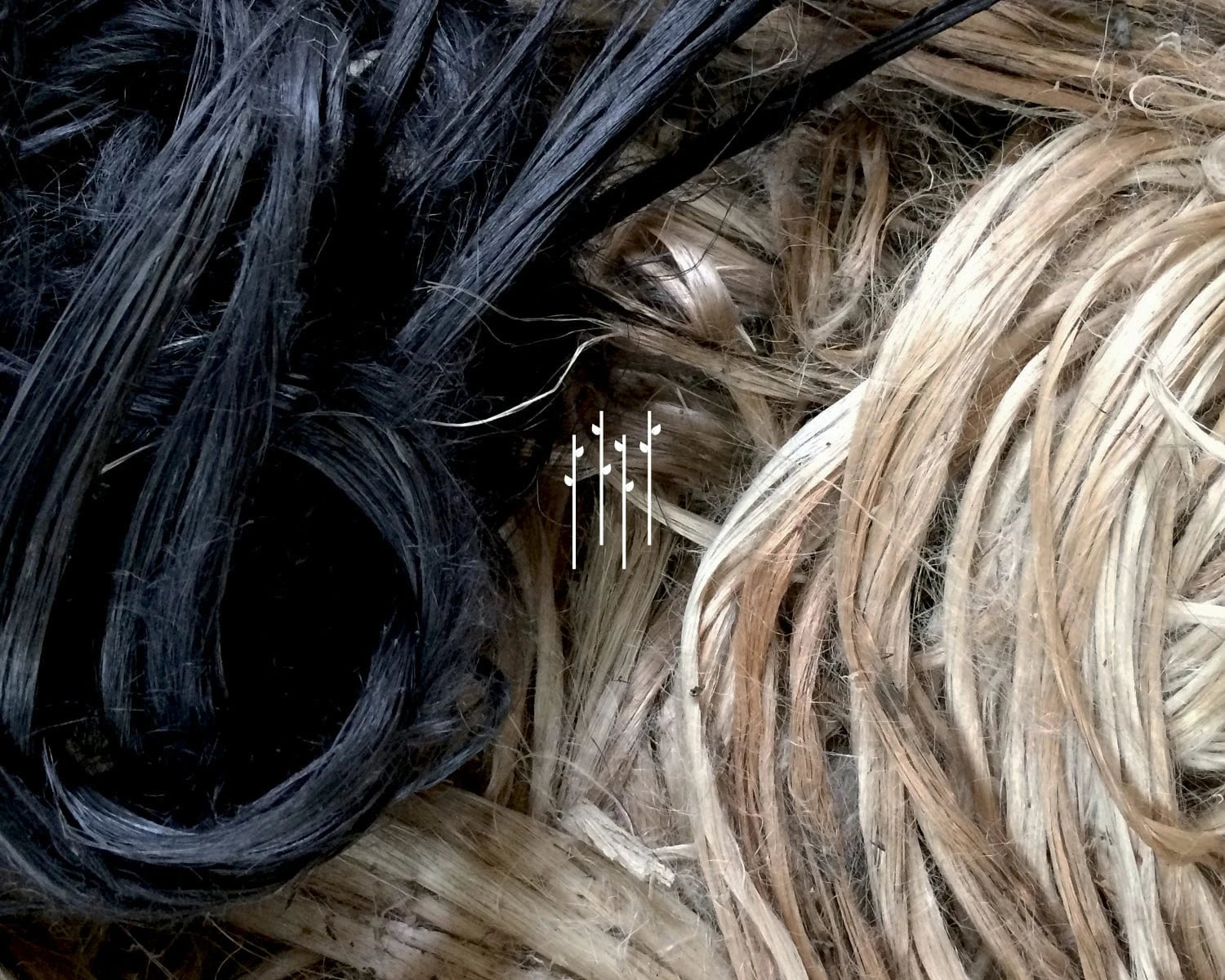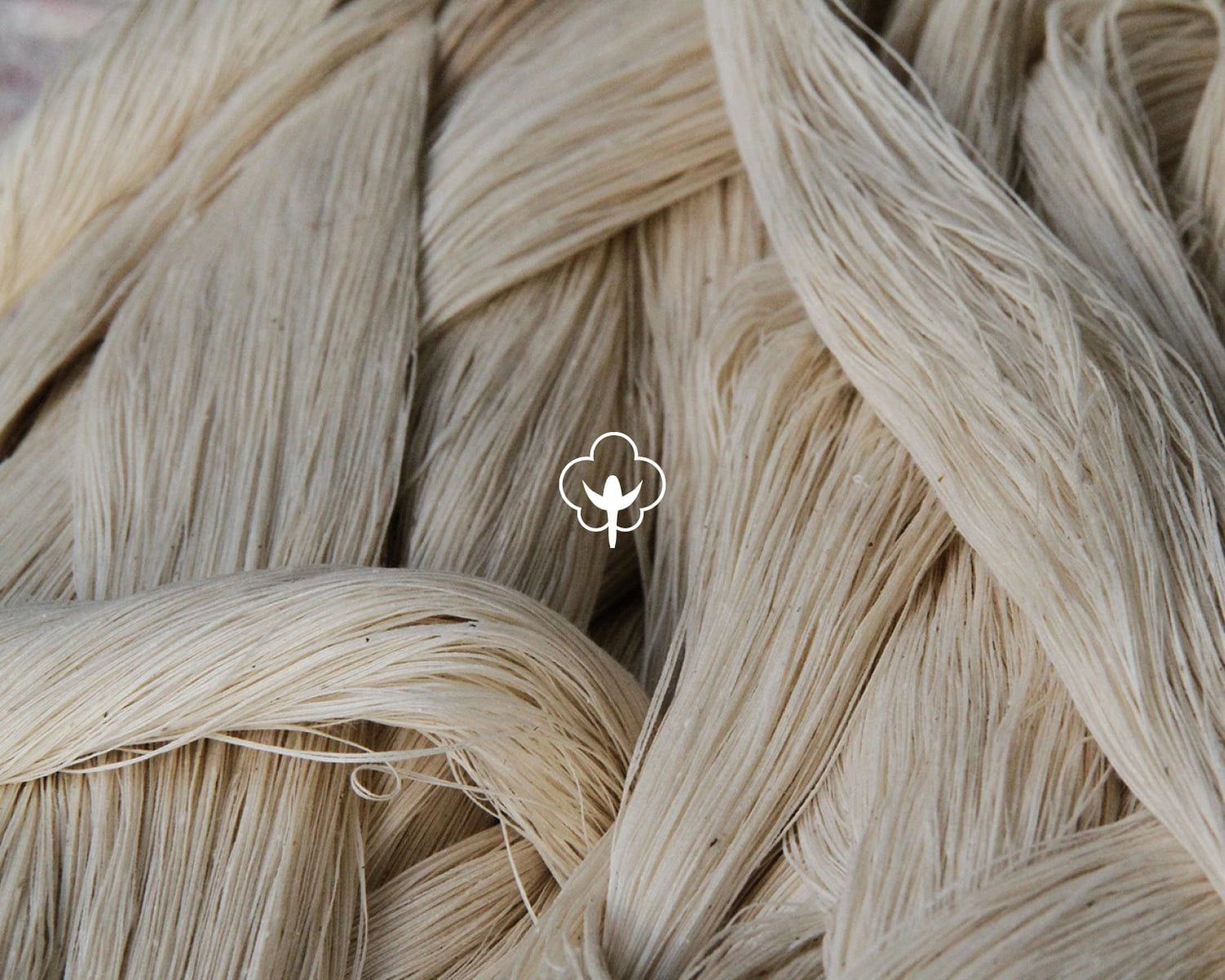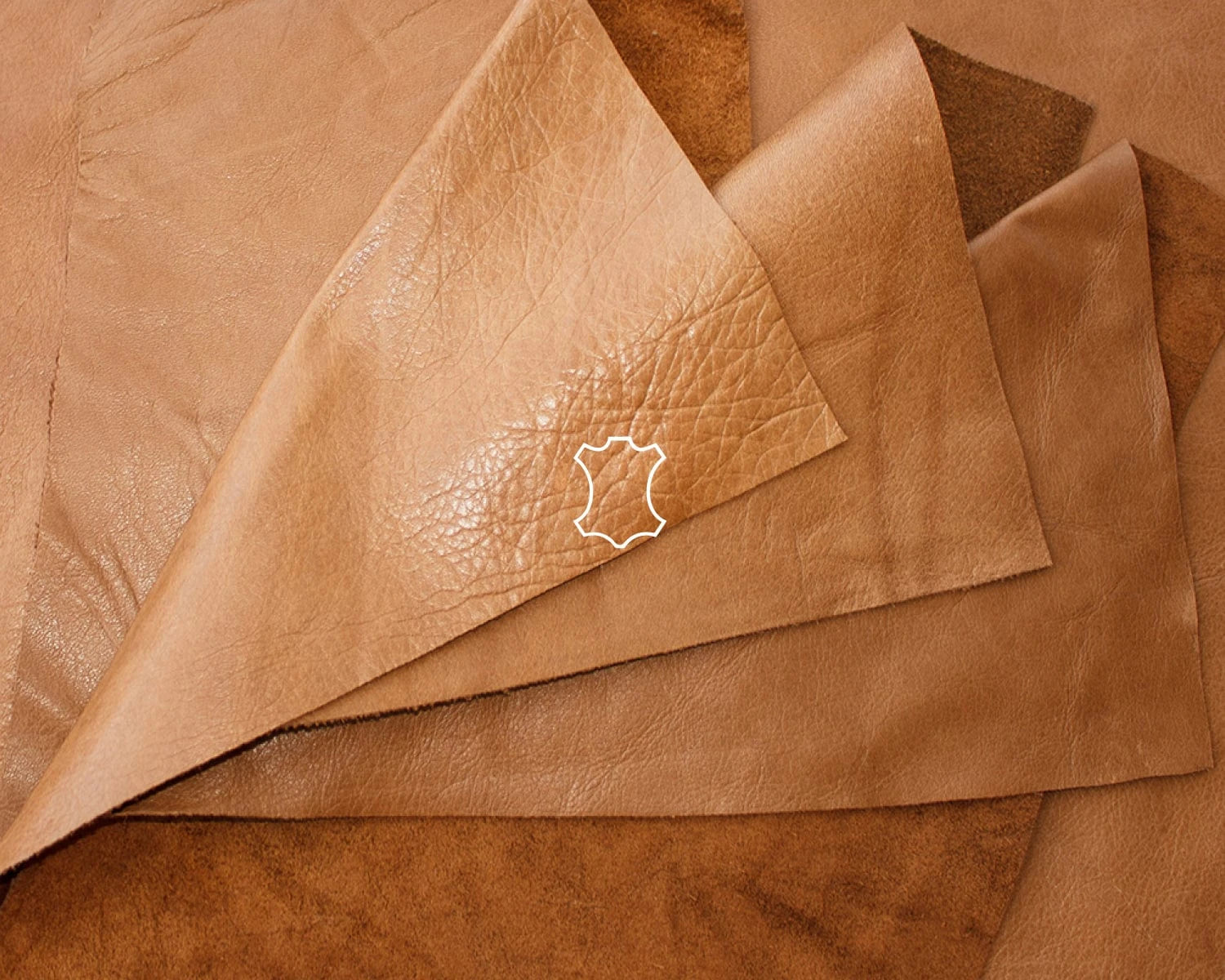Wall Art
Baskets
Rugs
TABLEWARE
Textiles
LIGHTING
DECORATIVE
BAGS

Techniques
It takes thousands of tiny twists, plaits and knots to turn beautiful natural fibres into finely woven rugs, homewares and accessories. Using both traditional and modern techniques, our artisans spin, weave and stitch every item by hand.
Plaits made from long strands of jute are the first step for weaving our rugs, baskets and tableware. Artisans wrap the plaits around a pole to hold things taught, adding new sections of jute as they go.
In much the same way, artisans also twist jute fibres for use in our macrame wall hangings and bags and to prepare for weaving some of our baskets.
Jute plaits are expertly coiled or woven to create our baskets, placemats and rugs. The consistent finish of each piece is testimony to the artisan’s skills.
When making the shapes for our rugs and runners, they coil, weave and stitch the strands into a small wooden frame to make sure each piece is the right size and shape.
Macramé was first introduced to our artisan partners in the 1970s. A recent resurgence in this craft has given the next generation of artisans a chance to learn these intricate skills, as seen in our wall hangings, bags and tableware.
Using age-old methods and skills that have been passed down through generations, artisans handloom beautiful textures and patterns with jute and cotton for our shoppers, totes, lining textiles and throws.
Working from home, or in community weaving centres on traditional wooden looms, each new pattern can take days to set up before the intricate process begins – row by delicate row.
Ancient techniques using tannin mordants and indigo sourced from nature are skillfully practiced to achieve beautiful hues of blue, charcoal, brown and gold for the fibres in our baskets and bags.
Where the skill of natural dyeing isn't present, we always make sure our artisan partners are using the safest and most sustainable option available to them.
All of our woven products including jute baskets, bowls and rugs are fixed and finished with hand stitching. Using a strong needle, and fine jute or cotton thread, artisans place tiny stitches through every layer to keep things securely in place.
Practicing traditional screenprinting techniques, our cardboard swing tags, fabric pouches and hessian duos are all carefully printed by hand using AZO free dyes in a workshop in northern Bangladesh.
Sewing workshops are established in several of our artisan communities.
Our shoppers and totes are carefully sewn in a workshop that supports women who have been rescued from prostitution. Leather handles for our bags are stitched by a group of men who live with discrimination and disability. And our fabric pouches are sewn by a large fair trade workshop that trains and employs women in a small community in northern Bangladesh.
From trimming loose fibres and threads to double-checking stitching, our artisans ensure quality throughout production, whilst still preserving the little flourishes that make our products distinctly handmade.

Materials
We love the warmth, texture and character of natural woven fibres. Our partners help to source the highest grade jute, cotton and hemp available. From fine jute string to the lining of our bags, each element is always natural.
Affectionately known as ‘the golden thread', we use this vegetable fibre to craft The Dharma Door rugs and runners; baskets and bowls; and the placemats and coasters in our tableware range.
Harvested twice per year, the raw jute is trimmed and then washed with boiling water to remove any insects, before being separated into sections for twisting, plaiting, weaving and stitching. Completely free of chemicals, the fibres are perfectly safe for our artisans to work with, and free of any unnecessary nasties. Natural products – pure and simple.
We admire the strength and versatility of this natural fibre, found in our much-loved hemp string bags, and crocheted scrubbers and washcloths that are soft enough for your skin! Long used by Bengali rope makers, our artisans twist, knot and crochet thousands of finely twisted fibres to make each piece.
Grown without chemicals, hemp is naturally resistant to pests, mould and ultraviolet light. These qualities, along with the beautiful texture, make it one of our favourite fibres to work with.
The simple, enduring beauty of cotton is celebrated throughout our collection. Hand loomed cotton canvas is used for lining bags and baskets, and loom artisans combine cotton with jute to weave the fabric for our sturdy shoppers and totes. Luxurious organic cotton throws – handwoven in India – compliment the collection beautifully.
There are many steps involved in processing the cotton, including combing, washing, dyeing and hand-spinning. A high level of skill and attention to detail is required in preparing the warp and weft threads for weaving on wooden handlooms.
Our Desai throw is crafted from wool from local desert sheep, chosen for its rugged texture and warmth. These throws are just like the shawls used by nomadic Rabari tribes people, who wear them to stay warm during crisp, nocturnal desert crossings.
The epitome of slow, unhurried production, the fabric has been crafted by master weavers in the desert region of Kutch, India. Sheep are clipped; fibres are spun; and many hours of weaving undertaken; before the edges and tassels are finished to perfection.
Ever mindful of the damage and harm inflicted by leather tanneries, it has taken us a long time to source the right suppliers for some of the tags and handles of our woven products.
To achieve the perfect shade, we only ever use natural vegetable dyes. Every Dharma Door handle and product tag is stamped, sewn or stitched in a leather workshop in Bangladesh that employs men who – without this opportunity – would be disadvantaged in their community.
Notify me when available
We will send you a notification as soon as this product is available again.
We don't share your email with anybody










